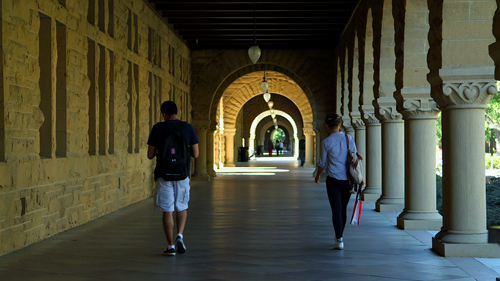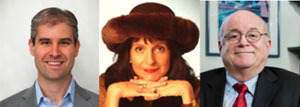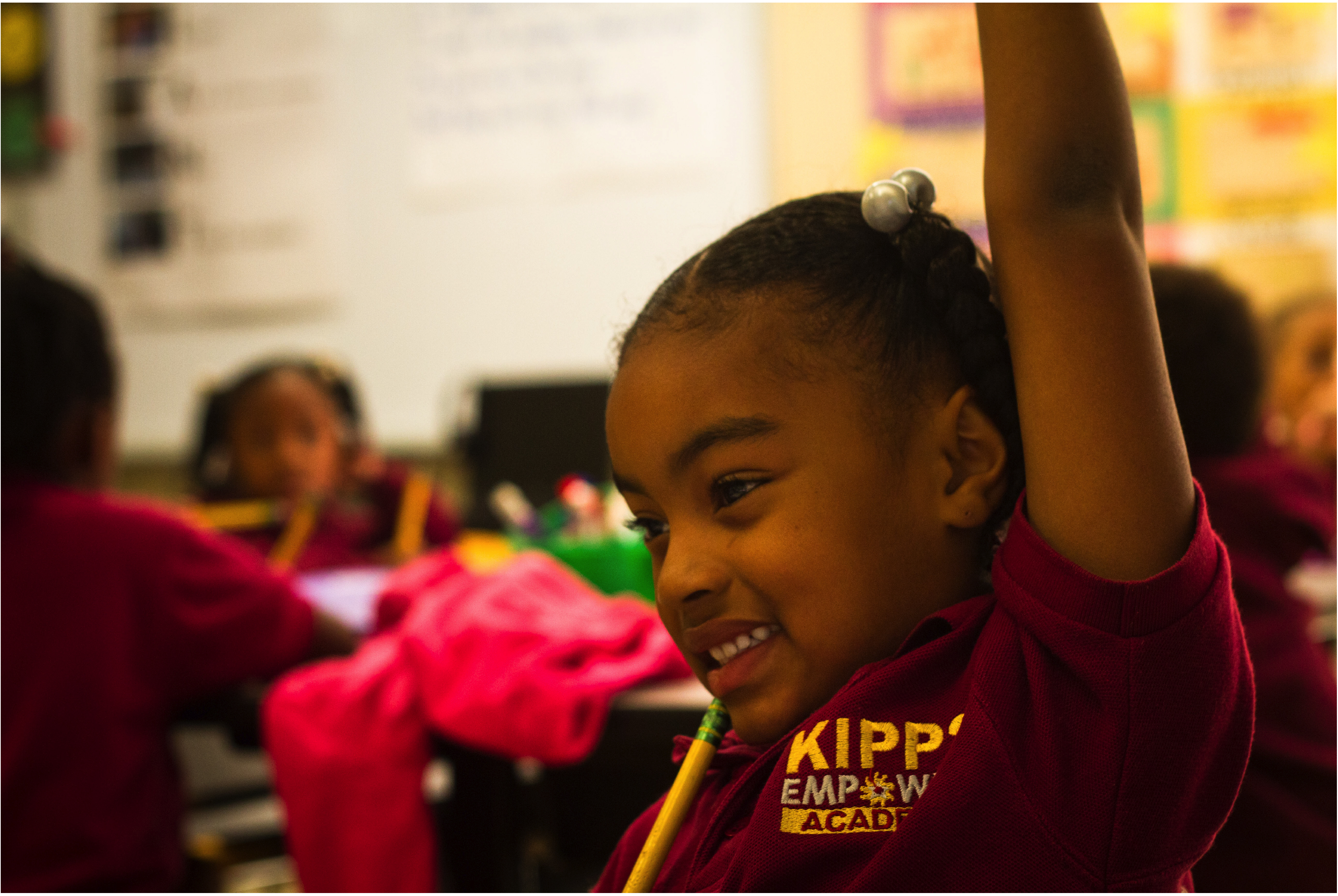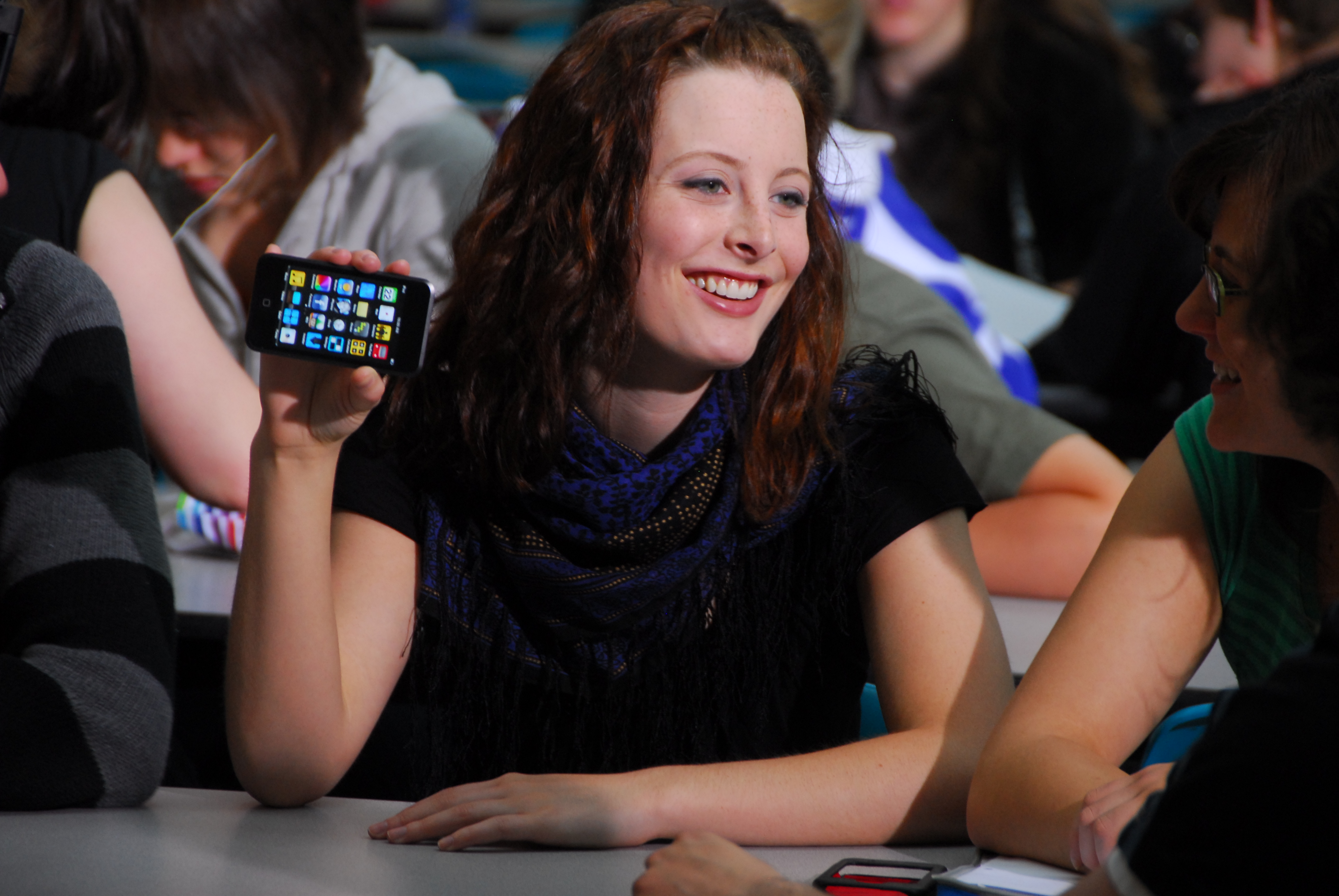
These are some of the questions you’ll find yourself pondering about higher education as you watch Andrew Rossi’s new film, מגדל שנהב, now in cinemas. OECD data shows that tuition levels in the US have become a class of their own. “It seems hard to see how these costs relate in meaningful ways to the value that students obtain,” תגובות אנדריאס שלייכר.
We live in the age of disruptive innovation. An age in which digital technology has the potential to bring down the cost of higher education and make it more accessible than ever before. I asked Michael Horn and Anthony Carnevale (who appears in the film) to join us in החיפוש הגלובלי לחינוך today to talk about the future of higher education. Michael Horn is the co-founder of the Clayton Christensen Institute, and executive director of its education program. Tony Carnevale is Director and Research Professor of the Georgetown University Center on Education and the Workforce.


Students from Asia and the rest of the world flock to our top American Universities. Many believe we have the best higher education system in the world and they are willing to pay for it. What does this mean for the continuing demand for places at US Colleges? What does it indicate about the strengths of these institutions?
מייקל הורן: The rise of the upper-middle class in Asia has created significant demand for elite higher education. This is a good thing for many U.S. universities in the short to medium term, and is helping to sustain many. In the longer term, עם זאת, because much of traditional American higher education is premised on limiting access and promoting selectivity — thereby keeping a limit on the number of seats available — there is a good chance that traditional institutions will be unable to keep up with this burgeoning demand and thereby open the door to the emergence of new institutions who can fill it. We are already seeing new elite institutions like the Minerva Project, which offers a highly selective liberal arts education that is far more affordable than the traditional American higher education, pop up to meet this new demand. As more of these institutions emerge that are affordable and selective, it could commoditize the offerings at the top.
In the UK you can get a BA degree in 3 years versus 4. Is that one solution you could see working in the US as a way to cut costs?
מייקל הורן: Moving to a 3-year degree as opposed to a 4-year degree certainly saves students money, although for some institutions, it would represent lost revenue. כמו כן, although many institutions offer a 4-year program today, students often take 6 years to graduate, or many will attend for many years and never graduate. במילים אחרות, the problem is significantly more complicated. סופו של דבר, moving to a 3-year degree doesn’t address the more fundamental business model challenges of rising costs plaguing traditional colleges and universities, which stems in part from the conflation – and subsequent administration – of what should be three separate business models represented in research, הוראה, and the networking aspects of a university, as well as the subsequent arms race to move up the prestige rankings.
A development that seems more exciting is the emergence of upstart online, competency-based degrees that make time to credential, a variable, and learning, a constant. As you master material, you move on, which means that the length of the degree is in the hands of the student and the support network that the institution puts around the student. Students can complete degrees significantly faster in these programs; and the programs – by being focused on teaching and learning only – are much more affordable. The key point is that the focus is not on the length but instead on the actual learning.


China and India will ultimately create their own Ivy Leagues. What do we do well that they can use? What can they learn from our mistakes?
מייקל הורן: Top American universities have been beacons of cutting-edge research; that’s an engine that has produced great things for our economy and helped attract people from around the world. Although we certainly have challenges to our research model, כללי, the results have been impressive. What I think China and India would do well to try and avoid is replicating our model completely. They should try to avoid conflating research and teaching under one roof where the activities don’t have to be interdependent, לדוגמא, so that they don’t create the cost and teaching quality issues that have resulted in the United States where research is almost always valued over good teaching.
There has been a lot of debate on the value of a liberal arts degree in a world where every industry is being disrupted by technology. Given the number of students who don’t have jobs, are we at the point where we need a task force to determine how students can acquire the skills they need to succeed in a 21st century workplace?
טוני קרנבל: Ivory Tower brings to the fore the rolling tensions growing underneath the American higher education system in an even-handed way with no ideological biases to have those tensions and issues resolved. Currently there are already numerous efforts to resolve these issues and to ensure that students have the skills. The question then lies on creating information systems that ensure students have access to the data and the tools necessary to close the skill gap.
מייקל הורן: אנחנו צריכים ליצור הרבה יותר תוכניות שצמצום הפער בין תלמידים ומעסיקים. באינטרנט, תוכניות מבוססות מיומנות – כמו אוניברסיטה הנאמנים המערבית, מכללת הדרום ניו המפשייר לאמריקה, האוניברסיטה של אוניברסיטת פאטן עכשיו, ועוד – לעמוד כדי לעזור. אני גם מסוקרן תוכניות כמו עצרת כללית וDev Bootcamp, כמו גם הנפקות של חברות כמו LearnUp.
I believe the liberal arts degree will continue to have a place and value in the world, אבל אני חושב שזה יוכל להיות הרבה יותר זול, כך שהרבה יותר אנשים יכולים לצרוך השכלה במדעי רוח במהלך חייהם.


כמה גדול לשחק תפקיד בטכנולוגית הרצון להפיל את העלות של השכלה גבוהה?
טוני קרנבל: Technology is the hope for many low-income students who cannot afford the more selective institutions. זה תשובה אחת להשגת עלויות תחת שליטה בשל עלויות פיתוח והפצה נמוכות, כמו גם הרבה יותר גמישים וגישה פתוחה. A new MOOC course for instance can be accessed by millions of students at low costs but these courses face skepticism from employers who do not see them as reliable credentials for student preparation for the labor market.
בסך הכל, MOOCS and other similar efforts point towards the potential of technology in the form of online learning in transforming the financial landscape of the higher education sector. ברור ש, there will be a mix of winners and losers on both the provider and student sides. עם זאת, getting employers to value these courses, and improving the incentives of students to enroll and complete are the first steps in potentially using these new models to lower overall costs.
מייקל הורן: Technology paired with business model innovation will play a critical role in bringing down the cost of higher education. באינטרנט, competency-based programs are already showing significant promise to tackle the challenge and represent very exciting disruptive innovations focused on learning and affordability. I don’t think “the solution” will be contained in just one thing either. The unbundling of the components of the degree and the ability for students to customize their education by combining different components – online courseware from a Udacity, the brick-and-mortar co-learning space of a General Assembly, the social experience of a Habitat for Humanity perhaps – represent exciting ways to bring value to students’ lives in a variety of forms. We’re living in an exciting time, and the opportunities to extend access to an affordable and high-quality higher education will only grow in the years ahead, even as they present challenges to existing institutions to keep up.


All Photos are courtesy of Samuel Goldwyn Films
בגלובל החיפוש לחינוך, להצטרף אליי ולמנהיגי מחשבה מוכרת בעולם כולל סר מייקל ברבר (בריטניה), DR. מיכאל בלוק (ארה"ב), DR. ליאון בוטשטיין (ארה"ב), פרופסור קליי כריסטנסן (ארה"ב), DR. לינדה דרלינג-Hammond (ארה"ב), DR. Madhav אוון (הודו), פרופ 'מיכאל Fullan (קנדה), פרופ 'הווארד גרדנר (ארה"ב), פרופ 'אנדי הארגריבס (ארה"ב), פרופ 'איבון הלמן (הולנד), פרופ 'קריסטין Helstad (נורווגיה), ז'אן הנדריקסון (ארה"ב), פרופ 'רוז Hipkins (ניו זילנד), פרופ 'קורנליה הוגלנד (קנדה), הכבוד ג'ף ג'ונסון (קנדה), גברת. שנטל קאופמן (בלגיה), DR. Eija Kauppinen (פינלנד), מזכיר המדינה Tapio Kosunen (פינלנד), פרופ 'דומיניק לפונטיין (בלגיה), פרופ 'יו לאודר (בריטניה), פרופ 'בן לוין (קנדה), לורד קן מקדונלד (בריטניה), פרופ 'בארי McGaw (אוסטרליה), שיב נדאר (הודו), פרופ 'R. נטריגין (הודו), DR. PAK NG (סינגפור), DR. דניז אפיפיור (ארה"ב), שרידהר ךאג'גופלן (הודו), DR. דיאן ראוויטש (ארה"ב), ריצ'רד וילסון ריילי (ארה"ב), סר קן רובינסון (בריטניה), פרופ Pasi Sahlberg (פינלנד), פרופ Manabu סאטו (יפן), אנדריאס שלייכר (PISA, OECD), DR. אנתוני סלדון (בריטניה), DR. דוד שפר (ארה"ב), DR. קירסטן Immersive Are (נורווגיה), קנצלר סטיבן ספאן (ארה"ב), איב Theze (Lycee Francais ארה"ב), פרופ 'צ'רלס Ungerleider (קנדה), פרופ 'טוני וגנר (ארה"ב), סר דייוויד ווטסון (בריטניה), פרופסור דילן Wiliam (בריטניה), DR. מארק Wormald (בריטניה), פרופ 'תיאו Wubbels (הולנד), פרופ 'מייקל יאנג (בריטניה), ופרופ 'Minxuan ג'אנג (סין) כפי שהם לחקור שאלות חינוך תמונה הגדולות שכל המדינות מתמודדות היום.
גלובל החיפוש לחינוך עמוד קהילה
C. M. רובין הוא המחבר שתי סדרות מקוונות רבים קוראות שלהיא קיבלה 2011 הפרס אפטון סינקלר, “גלובל החיפוש לחינוך” ו “איך וויל אנחנו קראו?” היא גם מחברם של שלושה ספרים רבי מכר, כולל אליס בארץ הפלאות Real, הוא המוציא לאור של CMRubinWorld, והוא משבש קרן עמית.
עקוב C. M. רובין בטוויטר: www.twitter.com/@cmrubinworld






תגובות אחרונות